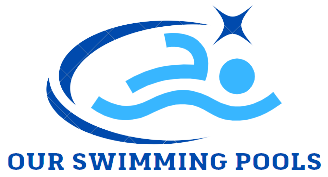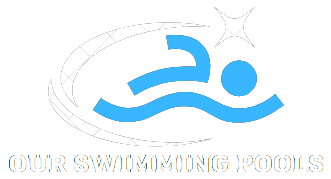Are you tired of the strong smell and harsh effects of chlorine in your swimming pool? Well, you’re not alone. Many pool owners are searching for alternative methods to keep their pool water clean without relying on chlorine. In this article, we will explore the various ways to clean swimming pool water without chlorine, providing you with a safe and eco-friendly solution.
Chlorine has long been the go-to chemical for pool maintenance due to its effectiveness in killing bacteria and maintaining water clarity. However, its powerful odor and potential health risks have made it a less desirable option for many pool owners. Fortunately, there are alternative methods that can not only keep your pool water clean but also provide a more pleasant swimming experience. From natural products like saltwater chlorinators and hydrogen peroxide to advanced filtration systems, we will delve into the pros and cons of each method, helping you find the best chlorine-free solution for your swimming pool. So, if you’re ready to dive into the world of chlorine-free pool maintenance, let’s explore the possibilities together.
How to Clean Swimming Pool Water Without Chlorine:
- Step 1: Install a pool ozone generator to eliminate bacteria and algae.
- Step 2: Use a natural enzyme-based pool cleaner to break down organic matter.
- Step 3: Utilize a UV pool sanitizer to kill bacteria and viruses.
- Step 4: Maintain proper pH and alkalinity levels to prevent microbial growth.
- Step 5: Regularly clean the pool filters to ensure efficient water circulation.
How to Clean Swimming Pool Water Without Chlorine
Having a clean and sparkling swimming pool is essential for a refreshing and enjoyable swimming experience. However, many people prefer to avoid using chlorine due to its harsh chemicals and potential health risks. If you’re looking for alternative ways to clean your pool water without chlorine, follow these step-by-step instructions for a chemical-free and eco-friendly pool maintenance routine.
Step 1: Balance the pH Levels
Before you start cleaning your pool water, it’s important to ensure that the pH levels are properly balanced. The ideal pH range for pool water is between 7.2 and 7.6. To achieve this, you can use pH testing strips or a digital pH meter to measure the current pH level of the water. If the pH is too high, you can lower it by adding muriatic acid, and if it’s too low, you can raise it by adding sodium carbonate or soda ash. It’s crucial to maintain the proper pH balance as it directly affects the effectiveness of other cleaning methods.
Once the pH levels are balanced, you can move on to the next step of cleaning your swimming pool water without chlorine.
Step 2: Use Natural Oxidizers
Oxidizers are essential for breaking down contaminants and organic matter in pool water. Instead of using chlorine-based oxidizers, you can opt for natural alternatives such as hydrogen peroxide or non-chlorine shock. Hydrogen peroxide is a powerful oxidizer that effectively kills bacteria and algae. You can add hydrogen peroxide directly to the pool water using the recommended dosage based on the size of your pool. Non-chlorine shock, on the other hand, utilizes potassium monopersulfate to oxidize impurities. It’s important to follow the manufacturer’s instructions when using natural oxidizers to ensure proper usage and effectiveness.
By using natural oxidizers, you can effectively clean your pool water without the use of chlorine, while still maintaining a safe and healthy swimming environment.
Step 3: Enhance Filtration
In addition to balancing the pH levels and using natural oxidizers, enhancing the filtration system of your pool can greatly improve water cleanliness. Make sure to regularly clean and backwash your pool filter to remove any debris, dirt, or algae. You can also consider using a pool clarifier or flocculent to aid in the filtration process. Pool clarifiers work by binding together small particles, making them easier for the filter to catch, while flocculents gather larger particles and sink them to the bottom for easier removal. These additional filtration methods help to keep your pool water clear and free of impurities.
Remember to maintain a regular cleaning schedule for your pool filter and monitor its effectiveness to ensure optimal filtration.
Step 4: Maintain Proper Circulation
Proper water circulation is crucial for preventing stagnant areas and ensuring that the pool water is evenly distributed and filtered. Run your pool pump and filter for an adequate amount of time each day to maintain proper circulation. It’s recommended to circulate the water for at least 8 hours a day, but this may vary depending on the size and usage of your pool. Additionally, you can use pool skimmers and water jets to promote better circulation and prevent debris buildup.
By maintaining proper water circulation, you can significantly improve the cleanliness and quality of your swimming pool water without relying on chlorine.
Step 5: Regular Testing and Maintenance
Lastly, it’s important to regularly test and maintain your pool water to ensure its cleanliness and safety. Use pool water testing kits to monitor the chlorine levels, pH levels, and overall water quality. This will allow you to make any necessary adjustments and take preventive measures before any issues arise. Additionally, regular pool maintenance tasks such as brushing the walls and floor, vacuuming, and removing debris will contribute to a cleaner and healthier swimming experience.
By following these steps and maintaining a regular pool maintenance routine, you can effectively clean and maintain your swimming pool water without the use of chlorine, providing a safe and enjoyable swimming environment for all.
Frequently Asked Questions
Here are some commonly asked questions about how to clean swimming pool water without chlorine:
Q: Why should I clean my swimming pool water without chlorine?
There are several reasons why you might want to clean your swimming pool water without chlorine. Chlorine is a common chemical used to disinfect and sanitize pool water, but it can have some drawbacks. Some people may be sensitive or allergic to chlorine, experiencing skin irritation or respiratory issues. Additionally, chlorine can produce harsh odors and cause damage to swimsuits and pool equipment over time.
By exploring alternative methods, you can maintain clean and clear pool water while minimizing the potential negative effects associated with chlorine use.
Q: What are some alternatives to chlorine for cleaning swimming pool water?
There are several alternatives to chlorine for cleaning swimming pool water:
1. Saltwater systems: These systems use salt to generate chlorine naturally, providing a milder and more gentle approach to pool sanitation.
2. UV sterilization: Ultraviolet (UV) sterilization systems use UV light to kill bacteria and other microorganisms in pool water. This method is chemical-free and can effectively sanitize the water.
Q: How can I maintain proper water balance without chlorine?
When cleaning swimming pool water without chlorine, it is still essential to maintain proper water balance. This involves monitoring and adjusting the pH level, alkalinity, and calcium hardness of the pool water. You can use alternative sanitizers like bromine or hydrogen peroxide to disinfect the water and prevent the growth of bacteria.
Regular testing and balancing of the water chemistry are crucial to ensure safe and enjoyable swimming conditions, even without chlorine.
Q: Are there any natural methods to clean swimming pool water without chlorine?
Yes, there are natural methods to clean swimming pool water without chlorine. Some options include:
1. Use of natural enzymes: Enzymes can break down organic matter and help keep the pool water clean. These enzymes are typically added regularly to maintain their effectiveness.
2. Filtration systems: High-quality filtration systems can remove impurities and contaminants from the pool water, reducing the need for chemical additives.
Q: Can I use baking soda to clean swimming pool water without chlorine?
Baking soda can be used to raise the pH levels and alkalinity of the pool water, but it is not a direct replacement for chlorine. While baking soda can help with water balance, it does not have the same sanitizing properties as chlorine or other alternative sanitizers. It is essential to combine the use of baking soda with other methods to effectively clean and maintain pool water without chlorine.
Consulting with a pool professional or expert can provide more guidance on using baking soda and other natural methods in combination with appropriate sanitizers for optimal pool water cleanliness.
In conclusion, the question of how to clean swimming pool water without chlorine has become increasingly important in today’s world. With growing concerns about the health and environmental impacts of chlorine, pool owners are seeking alternative methods to maintain clean and safe swimming water. While chlorine has long been the go-to solution for disinfection, there are now a variety of effective alternatives available.
By exploring options such as ozone systems, saltwater systems, and natural enzyme-based products, pool owners can keep their swimming water crystal clear without relying on chlorine. These alternatives not only provide a safer and more environmentally friendly solution but also offer additional benefits such as reduced skin and eye irritation. With proper maintenance and regular water testing, it is possible to achieve and maintain pristine pool water without the need for chlorine. So, whether you’re a pool owner looking to make a switch or someone interested in sustainable pool maintenance, it’s time to embrace these alternative methods and enjoy a chlorine-free swimming experience.


















